Problem-solving abilities Worksheets for Ages 7-9 - Page 2
43 filtered results
-
From - To
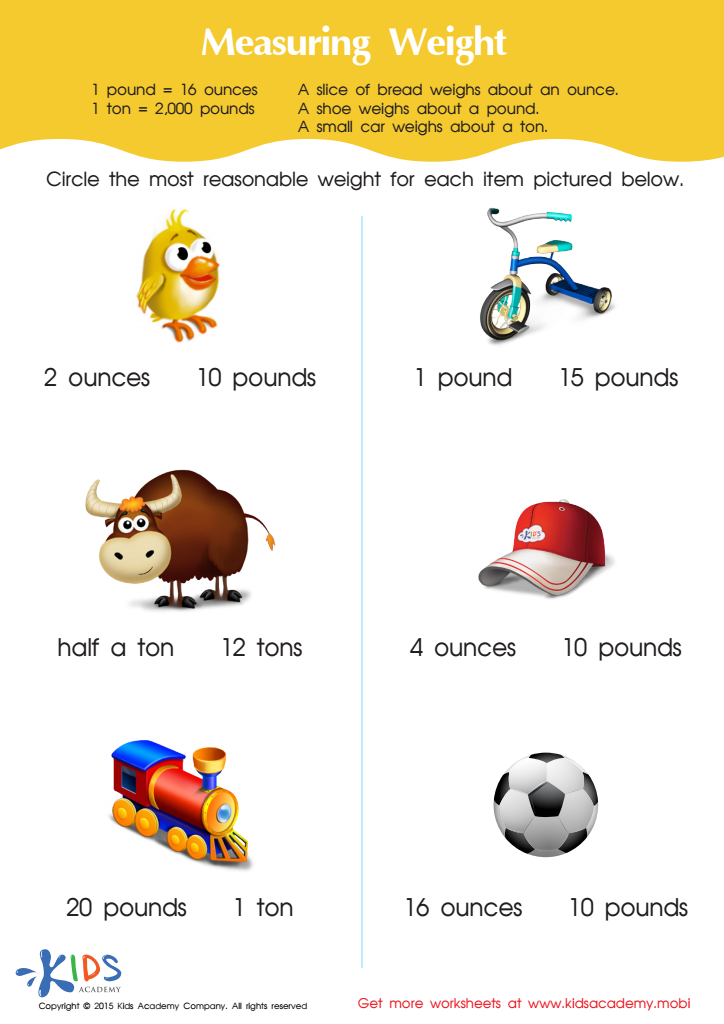

Measuring Weight in Ounces, Pounds and Tons (Part 2) Worksheet


Fourth of July Maze Printable
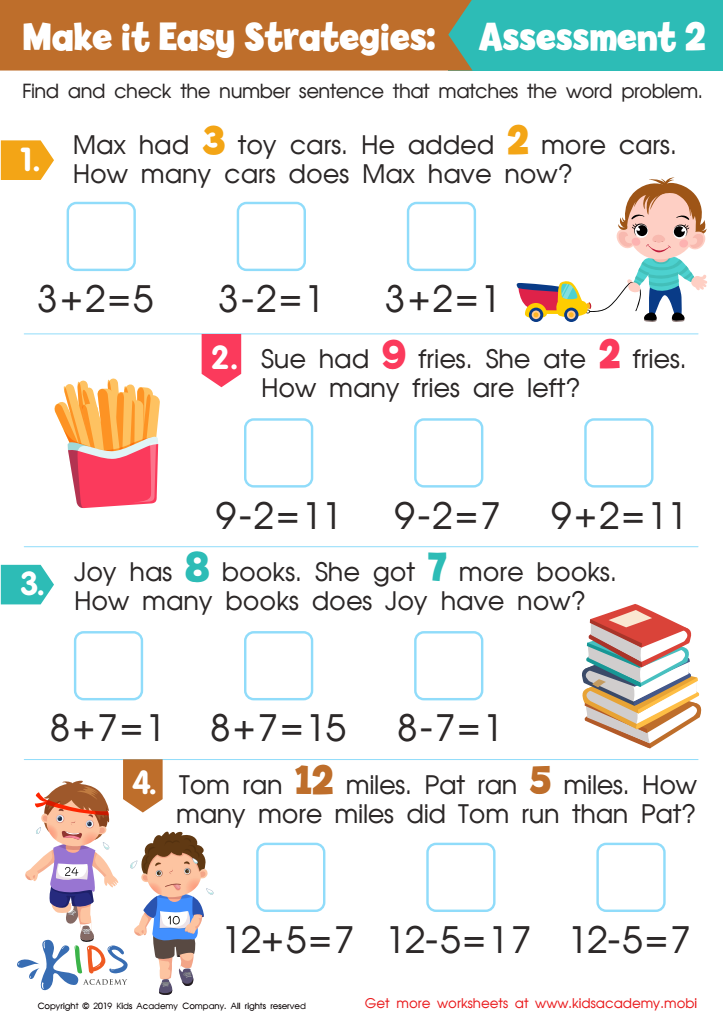

Make it Easy Strategies: Assessment 2 Worksheet
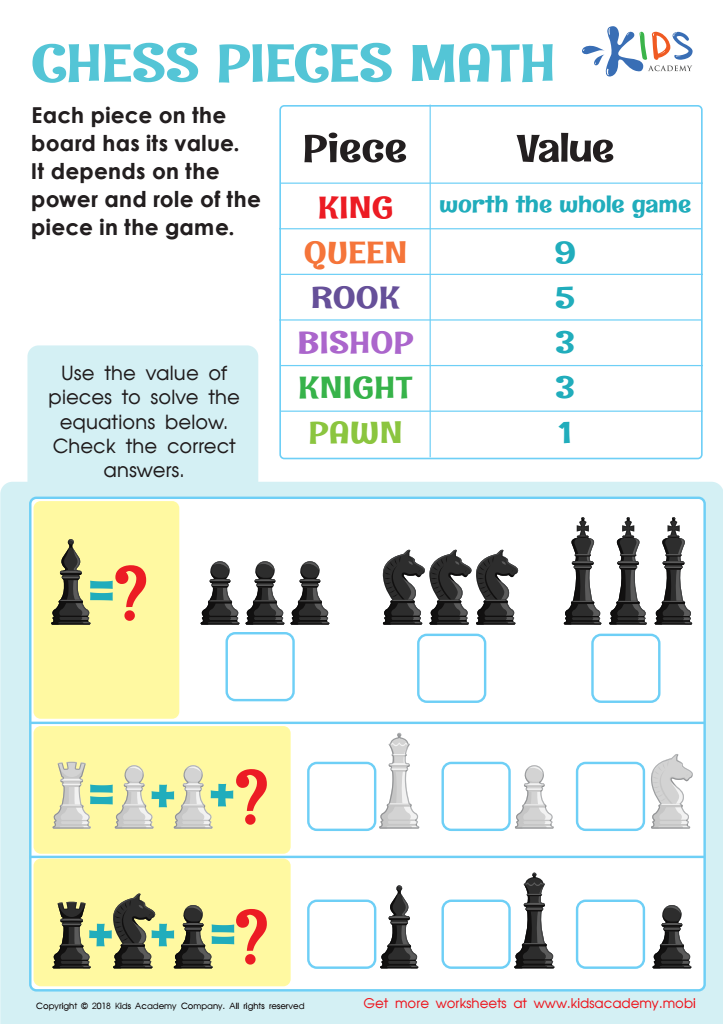

Chess Pieces Math Worksheet
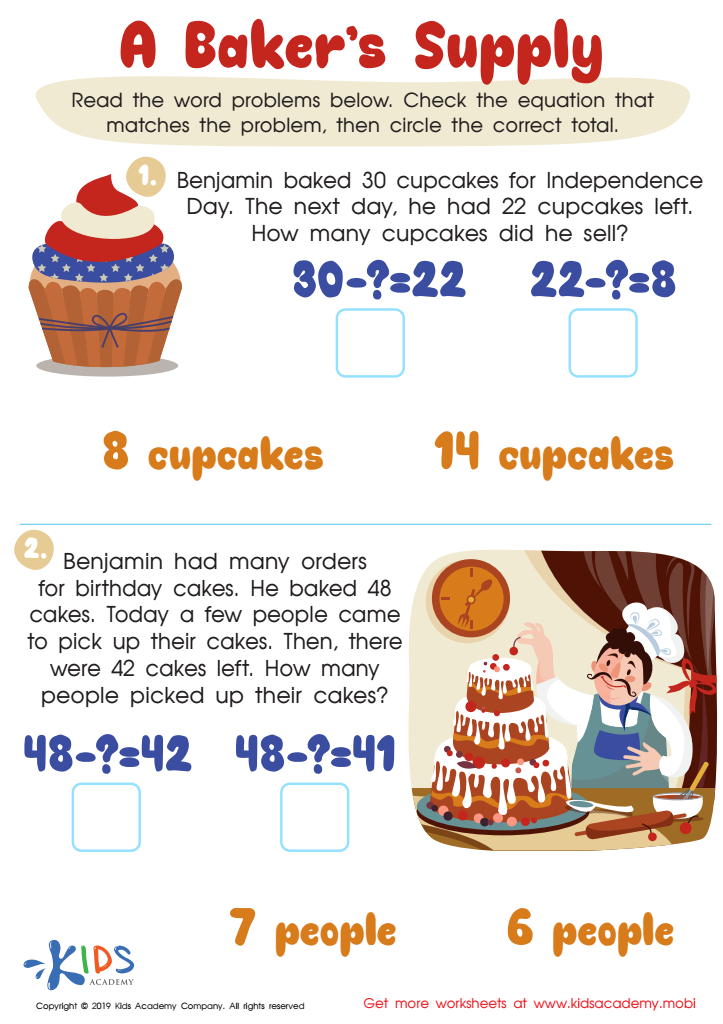

A Baker's Supply Worksheet
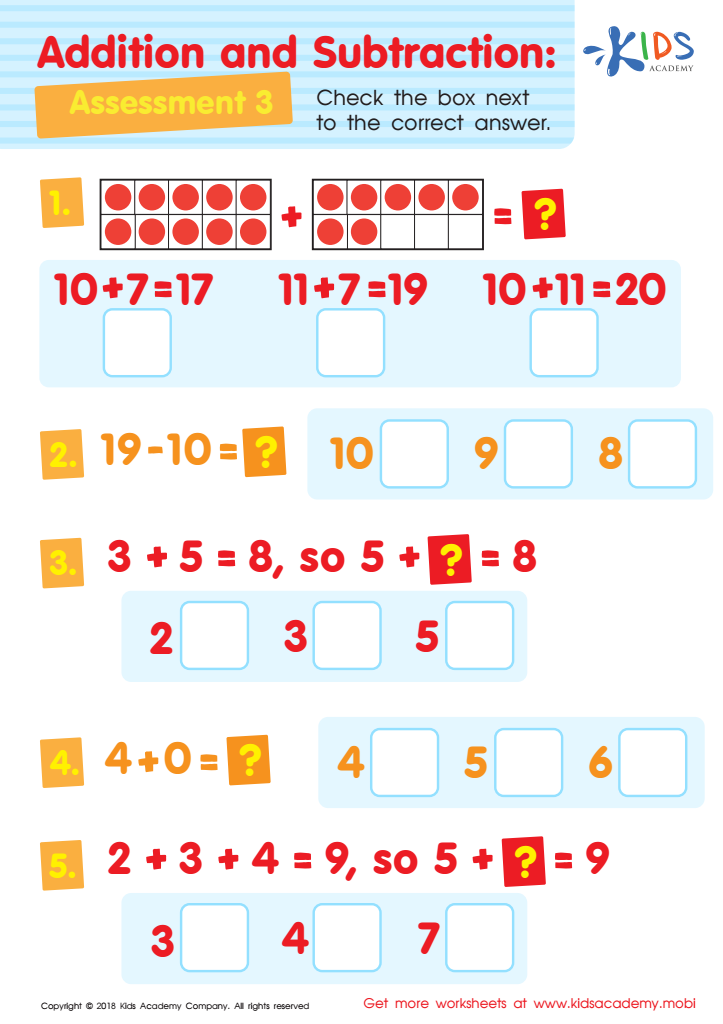

Addition and Subtraction Assessment 3 Worksheet


Sweet Shop – Counting Coins Worksheet
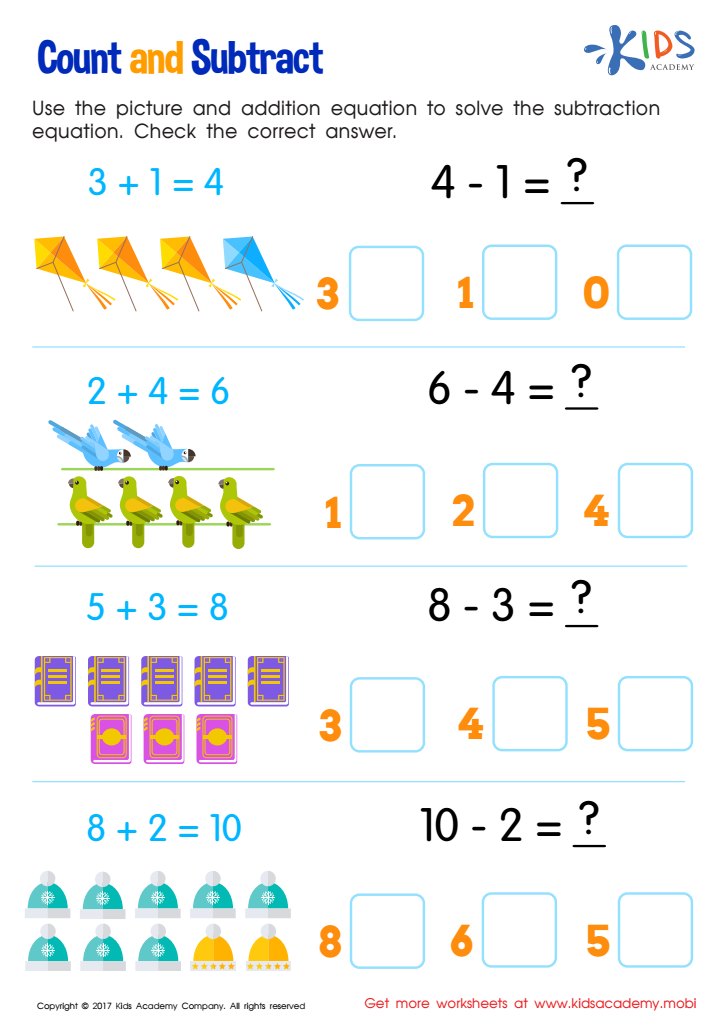

Count and Subtract Worksheet
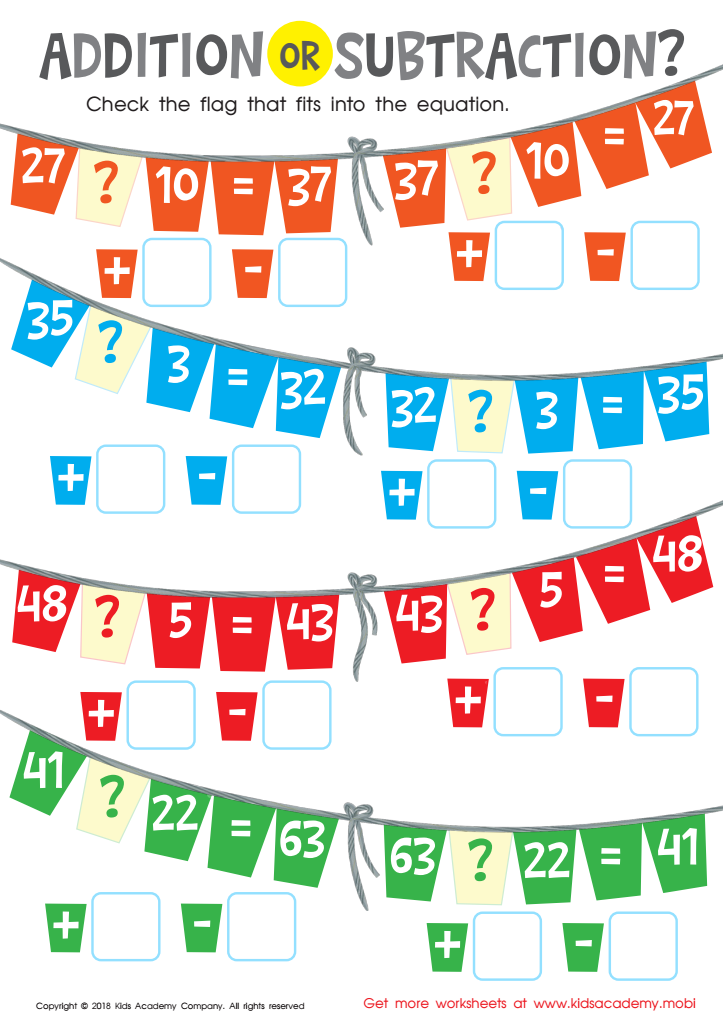

Addition or Subtraction? Worksheet
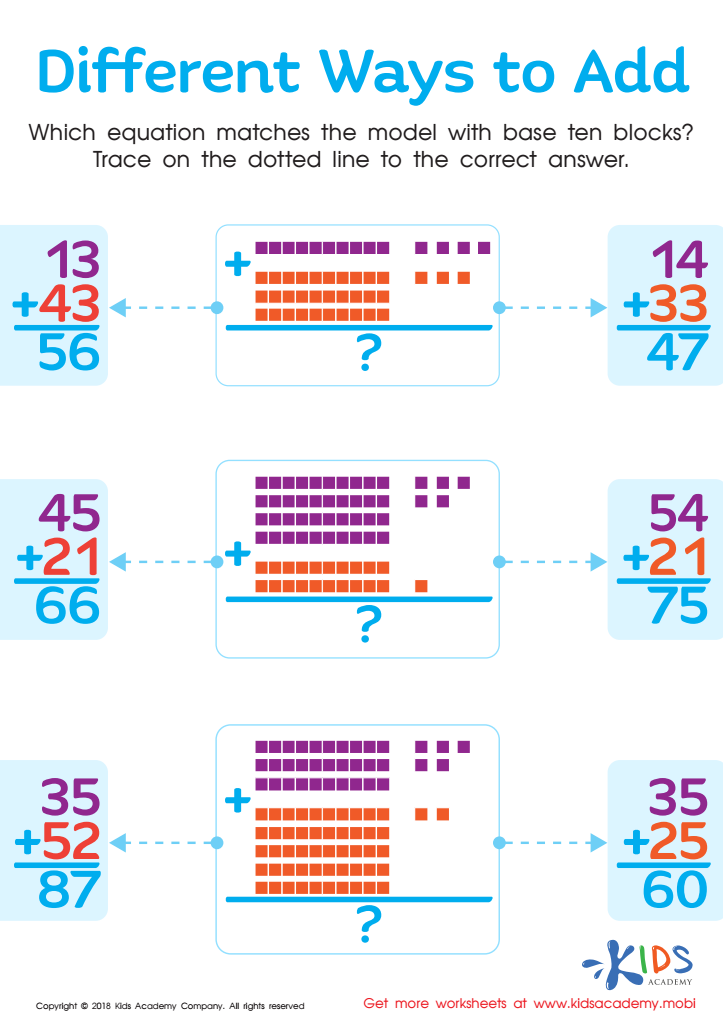

Different Ways to Add Worksheet
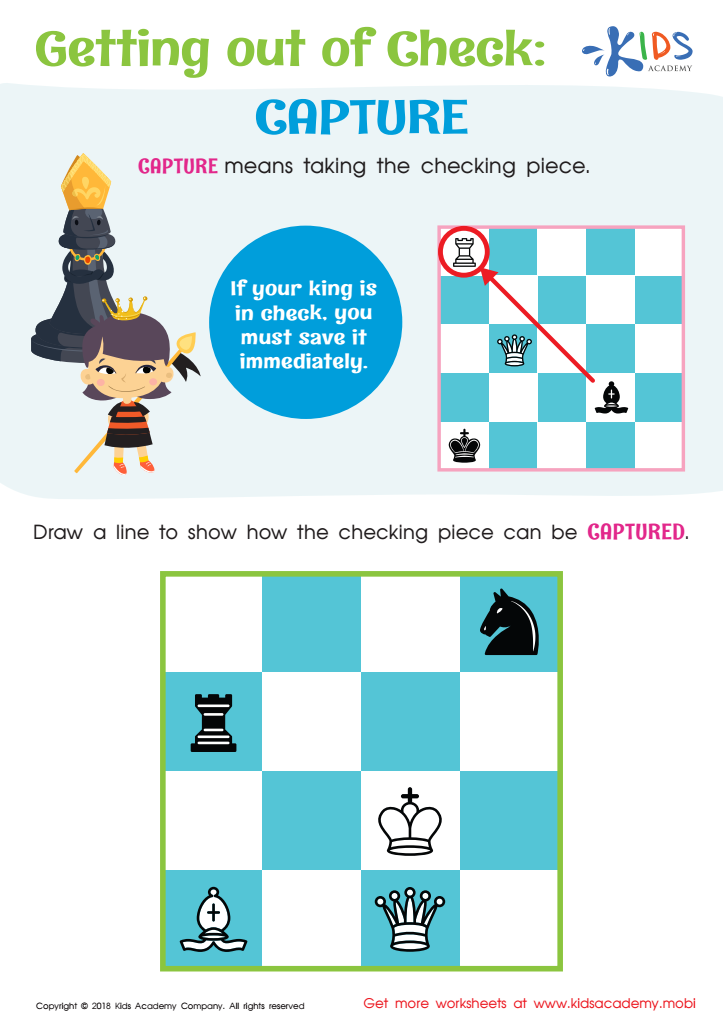

Getting out of Check: Capture
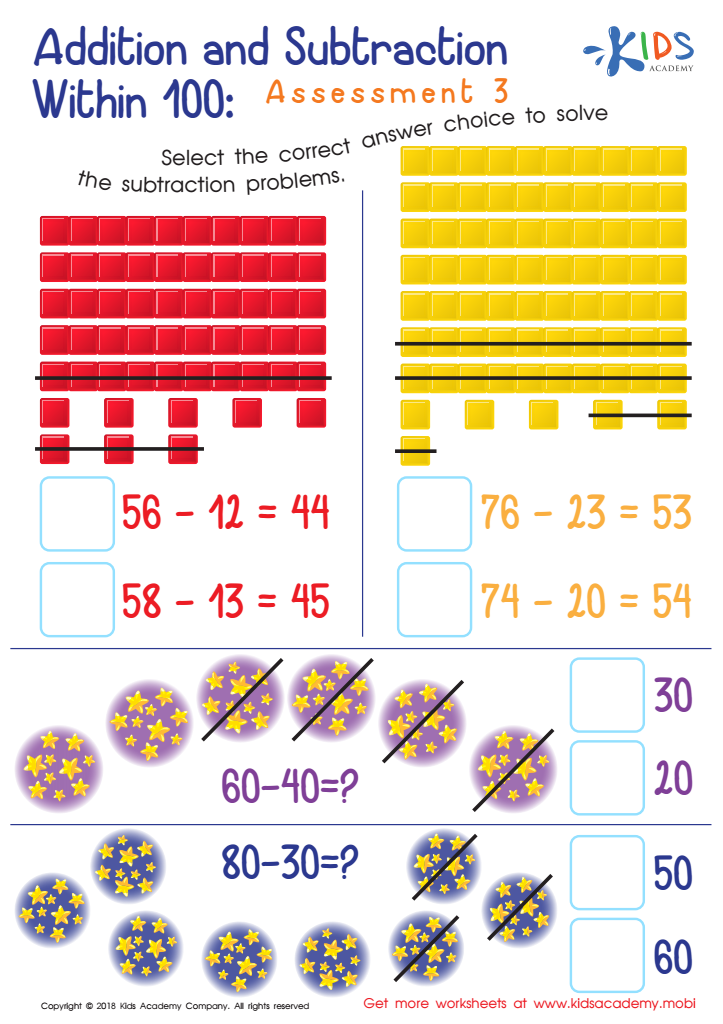

Addition and Subtraction Within 1: Assessment 3 Worksheet
Parents and teachers should prioritize problem-solving abilities for children aged 7-9 due to their crucial role in cognitive and social development. At this age, children are starting to think more logically and abstractly, making it a prime time to cultivate critical thinking skills. Strong problem-solving abilities help children navigate challenges both in academic settings and daily life, promoting resilience and independence.
Encouraging problem-solving enables children to approach obstacles with confidence, teaching them to assess situations, brainstorm solutions, and evaluate outcomes. These skills foster creativity, as children learn to think outside the box and approach problems from various angles. Additionally, problem-solving activities strengthen collaboration skills, as children often work together to find solutions, enhancing their ability to communicate and empathize.
Moreover, these abilities are linked to future success in school and beyond. As children learn to tackle complex problems independently, they build a foundation for higher-order thinking skills necessary for advanced learning in subjects like math, science, and even social studies.
Ultimately, nurturing problem-solving abilities equips children with essential tools for lifelong learning, allowing them to face uncertainties with a resourceful mindset and positively influencing their overall emotional well-being and self-esteem.
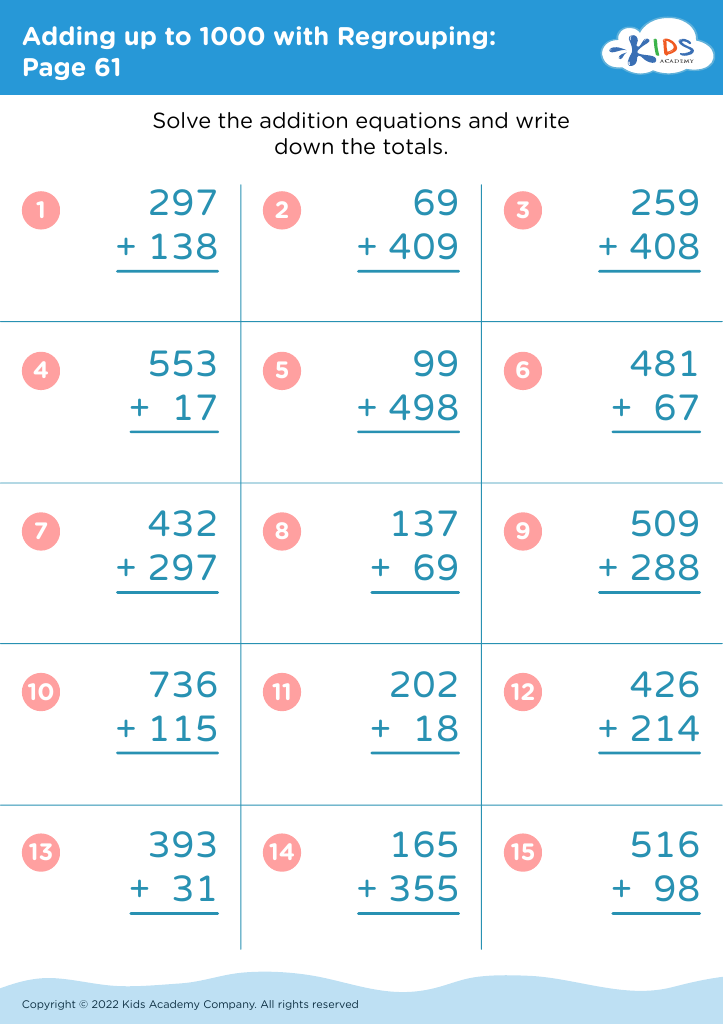

 Assign to My Students
Assign to My Students

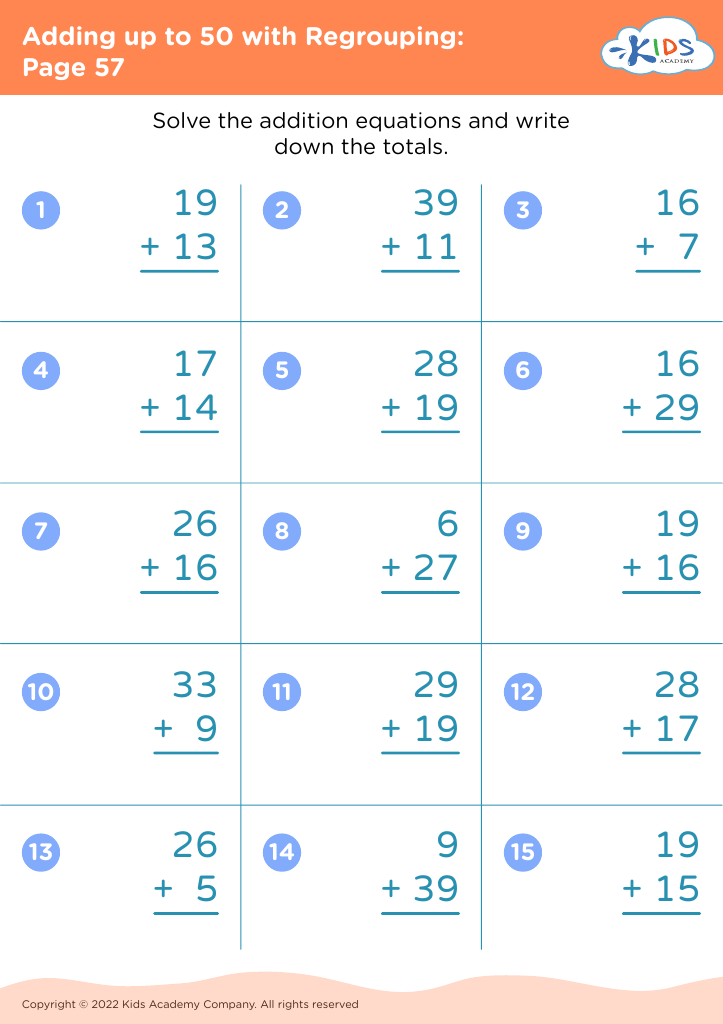

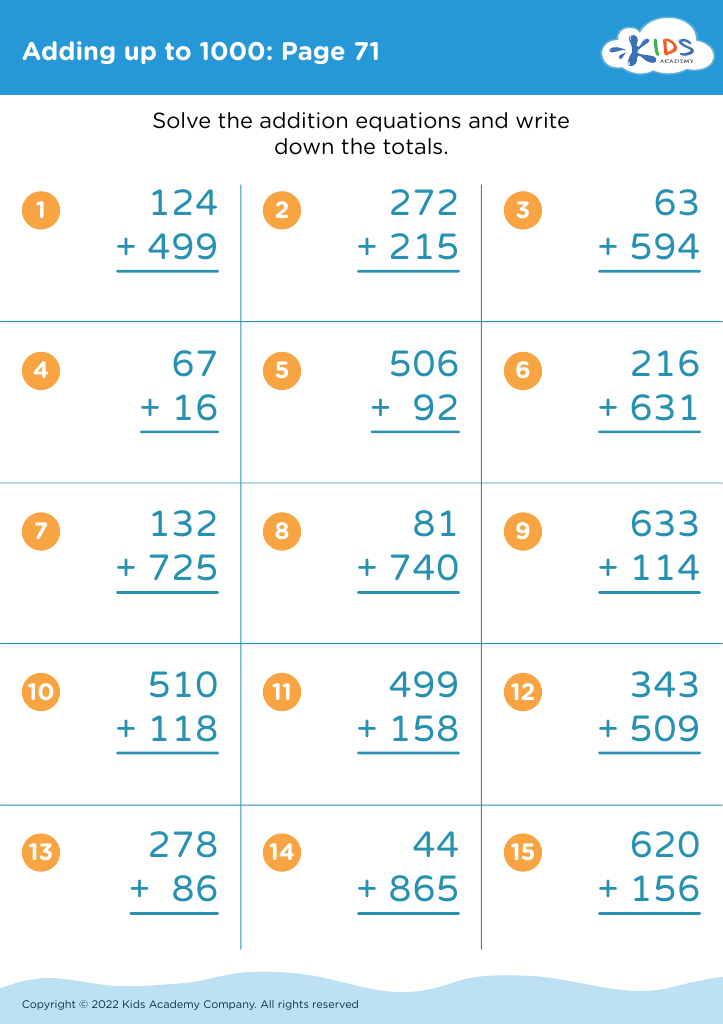








.jpg)













